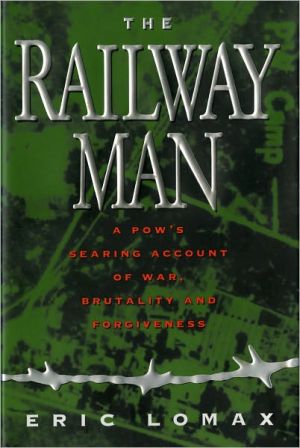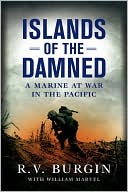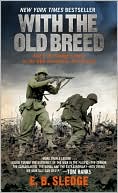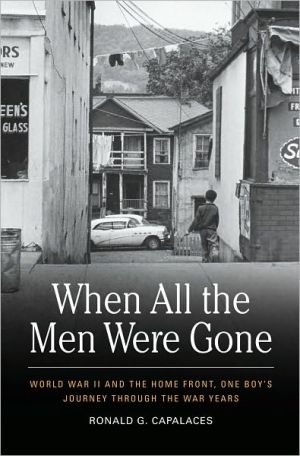The Railway Man: A POW's Searing Account of War, Brutality and Forgiveness
Here is a remarkable true story of forgiveness—a tremendous testament to the courage that propels one toward remembrance, and finally, peace with the past. A classic war autobiography, The Railway Man is a powerful tale of survival and of the human capacity to understand even those who have done us unthinkable harm.\ From The Railway Man:\ The passion for trains and railroads is, I have been told, incurable. I have also learned that there is no cure for torture. These two afflictions have...
Search in google:
Eric Lomax was a lonely boy in Scotland in the 1930s, a devoted railway enthusiast—a spotter of trains in the glorious final age of steam, when engines were really worth looking at. In 1941 he was sent to Malaya as a member of the Royal Corps of Signals. Taken prisoner after the fall of Singapore, he was put to work on the infamous Burma-Siam railway, which cost the lives of 250,000 men. There he helped to build an illicit radio, so that the prisoners could follow the news of the war. The discovery of the radio by the Japanese brought on two years of dreadful torture, starvation, and distress. Among his tormenters was a young English-speaking Japanese man attached to the secret police. Lomax never forgot his voice or his face. He spent half a century after the war internalizing and alone with his experiences; there was no one with whom he could share them. Late in life, Lomax learned how to believe in the possibility of hope. By a miracle of coincidence he discovered that his Japanese interrogator was alive, and found out where he was. This unforgettable book describes a life saved from final bitterness by an extraordinary will to remember and forgive. Boston Globe A timely book that touches upon great issues....He contributes monumentally to our understanding of war and remembrance.
\ People MagazineAn extraordinary book.\ \ \ \ \ Boston GlobeA timely book that touches upon great issues....He contributes monumentally to our understanding of war and remembrance.\ \ \ Publishers WeeklyLomax, a British Army signals officer, was captured by the victorious Japanese during the Singapore campaign in 1942. Fascinated by railroads ever since his childhood in Edinburgh, he took what pleasure he could in the irony of his slave-labor assignment as a POW: the construction of the Burma-Siam Railroad, made famous later in the David Lean film The Bridge on the River Kwai. When guards discovered his lovingly detailed map of the right-of-way, Lomax was turned over to the Japanese secret police as a suspected spy. In the subsequent torture sessions, the interpreter, a young man named Nagase Takeshi, played a prominent role in the effort to break him down. Half a century later, by what he calls "an incredible and precious coincidence,'' Lomax learned that Takeshi was still living. A meeting of reconciliation at the Kwai River, which Lomax at first suspected was a fraudulent publicity stunt, was arranged. His graceful and restrained account of how the two men eventually became "blood-brothers'' after Lomax granted Takeshi full forgiveness is deeply moving. (Sept.)\ \ \ \ \ Library JournalLomax, the "railway man," was an Scotsman in the Royal Signal Corps stationed in Malaya. Trains were his passion, and when Singapore was taken by the Japanese at the start of World War II, he was sent to Thailand as a prisoner of war to work on the infamous Burma-Siam railroad, recalled in the motion picture The Bridge on the River Kwai. When the elementary radio he built and a detailed map he sketched were found, he was interrogated as a spy and horrifyingly tortured day after day. The interpreter was as merciless as the torturers, and this was the man Lomax could not forget or forgive. After the war he returned home, psychologically and physically impaired. Almost 50 years later, he learned his tormentor was still alive and had been haunted by his role in the torture of a British POW. The Japanese man could not properly die unless he was forgiven. The last few, too short pages detailing the climactic meeting of the two men are the strongest. Lomax shares his heavyhearted feelings with the reader in a brilliant display of underwriting. A strong choice for most libraries. [The BBC is planning a major film starring John Hurt.]\ —Ralph DeLucia, Willoughby Wallace Lib., Branford, Conn.\ \








